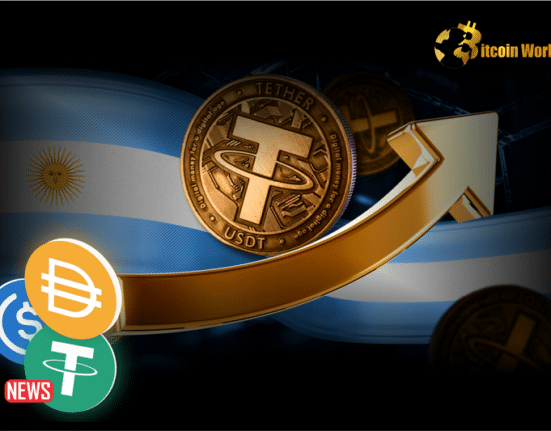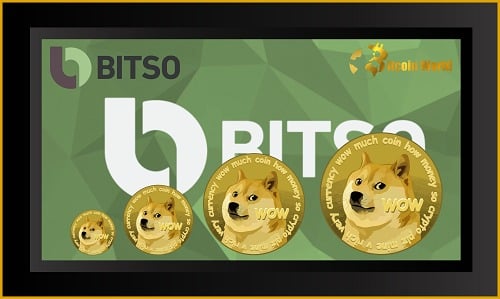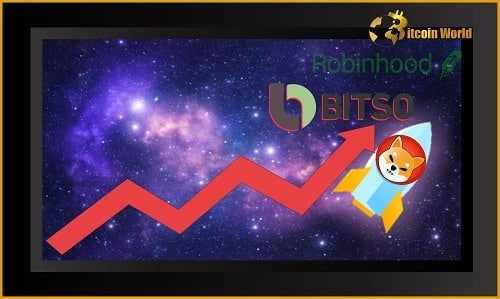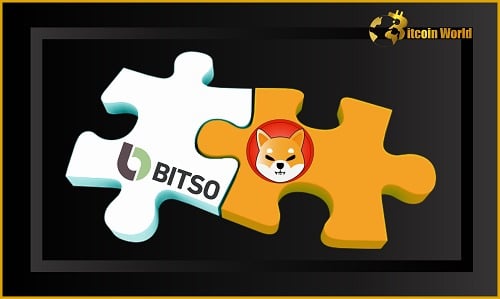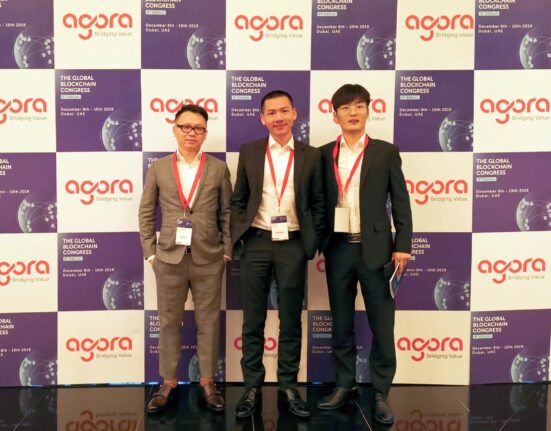In a world that’s increasingly connected yet disjointed, the need for robust systems of governance and community engagement is more pressing than ever. By embracing change and cultivating strategic foresight, Latin America is actively forging a path toward a transformative future. At the heart of this transformation is blockchain technology, a concept that’s grown beyond its cryptographic roots to symbolize a new frontier in trust and transparency.
This isn’t just about technological advancement; it’s about harnessing a tool that promises to redefine governance, community engagement, and social equity. What role can blockchain technology play in shaping the future of a region so rich in culture yet so diverse in its needs? As we analyze the pioneering efforts across Latin America, we uncover stories not just of technological disruption, but of real-world impact and hope.
This listicle is an invitation to explore the intersection of technology and social impact through the lens of Latin America’s trailblazers—those who are not waiting for change but are actively bringing it into existence.
Philcoin
Philcoin stands out as a paradigm of innovation in Latin America’s growing blockchain landscape. Envisioned as more than just a digital currency, Philcoin represents a transformative force in philanthropy, leveraging the immutable and transparent nature of blockchain to forge a path toward social equity and empowerment.
Philcoin’s digital platform is a testament to the potential of blockchain to revolutionize charitable giving. With its precise tracking capabilities, it ensures that donations are made and followed through to their final destination, offering real-time transparency that was previously elusive in the world of philanthropy. This commitment to accountability resonates deeply in regions like Latin America, where trust in institutions often needs reaffirmation.
Moreover, Philcoin’s initiatives in the region have catalyzed partnerships that intersect with crucial societal segments. In Brazil, the collaboration with the mayor of Florianopolis and in Costa Rica with the Cabécar “Chirripo” tribe is not only about assistance — it’s about creating sustainable ecosystems where blockchain serves as the backbone for development and progress. For instance, the project in Costa Rica aims to develop the world’s first blockchain-powered indigenous community, which could revolutionize the concept of community autonomy and governance.
Philcoin’s innovative approach in Latin America is further enriched through a strategic partnership with Governor Eduardo Verano in Barranquilla, Colombia. This alliance is focused on leading initiatives in Smart Cities, renewable energy, and philanthropy. Such collaborations highlight Philcoin’s commitment to leveraging blockchain technology for societal advancement and echo its broader global impact goals aligned with the United Nations’ 17 Sustainable Development Goals.
The platform’s inclusive design offers potential for the unbanked, a significant part of Latin America, providing them with the tools for financial participation and the opportunity to contribute to social welfare.
In essence, Philcoin is not just a cryptocurrency platform. It is a movement aiming to democratize philanthropy, empower communities, and nurture a culture of participation through the innovative application of blockchain technology. In the evolving narrative of Latin America’s social development, Philcoin stands out as a leading voice, exemplifying the region’s drive towards leveraging technology for the greater good.
BanQU
BanQu, a groundbreaking initiative in the blockchain sphere, is making significant strides in Latin America, demonstrating the profound social impact of this emergent technology. At its core, BanQu’s mission revolves around fostering economic inclusion and empowering marginalized communities by providing them with a secure, digital identity. This innovation is particularly transformative in regions like Latin America, where a significant portion of the population remains unbanked and detached from the formal economic system.
BanQu’s platform transcends traditional financial boundaries, allowing individuals, including refugees and those in remote areas, to establish a verifiable digital identity. This identity serves as a key to unlocking numerous doors previously closed to them – access to financial services, credit history, and the broader economic ecosystem. By bridging this gap, BanQu is not just enhancing financial inclusion but is actively contributing to the economic empowerment of individuals and communities.
The technology’s application in Latin America showcases a profound understanding of the region’s unique challenges and opportunities. Through BanQu, individuals in Latin America are now able to participate more fully in the economy, gaining access to services and opportunities that were previously beyond their reach. This not only fosters individual growth but also contributes to the broader economic development of the region.
Moreover, BanQu’s approach is aligned with a larger global movement towards ethical and sustainable practices. By providing a transparent, blockchain-based platform, BanQu helps companies in various industries, including agriculture, recycling, and fashion, to prove the provenance of their products and ensure sustainable and ethical supply chains. This aspect is particularly crucial in a world increasingly conscious of environmental and social responsibility.
In essence, BanQu represents a beacon of hope and progress in the blockchain space. Its innovative use of technology to address fundamental economic and social challenges places it at the forefront of Latin America’s digital revolution. BanQu’s success story is a testament to the potential of blockchain to catalyze positive change, paving the way for a more inclusive and equitable economic landscape in the region and beyond.
Agora
In Latin America, where the integrity of electoral processes is a paramount concern, Agora stands as a transformative force in the realm of blockchain technology. Specializing in blockchain-based voting systems, Agora is revolutionizing the way elections are conducted. By leveraging blockchain’s inherent features, Agora offers secure, transparent, and tamper-proof voting systems, ensuring the sanctity and credibility of democratic processes.
Agora’s impact was notably showcased in the Sierra Leone Presidential Elections, where they piloted blockchain voting, marking a significant milestone in the use of this technology for governmental elections. This event demonstrated blockchain’s potential to expedite and secure voting processes, presenting a new paradigm in election integrity.
In Latin America, Agora’s technology addresses critical issues surrounding electoral processes. It provides a means to conduct fair, transparent, and verifiable elections, thus strengthening democratic practices in a region where the legitimacy of election results is often questioned. Agora’s platform ensures that the entire voting process is fully transparent and publicly verifiable, while also protecting voters’ identities and choices.
Moreover, Agora’s approach goes beyond just enhancing the security and transparency of elections. It makes voting more accessible and convenient for voters, contributing to higher participation rates and more inclusive democratic processes. Additionally, the digitization of traditional paper and manual processes significantly reduces the costs associated with elections, making it a financially viable option for many countries in Latin America.
Through its innovative use of blockchain technology, Agora is not only strengthening the democratic fabric of Latin American countries but also setting a global standard for how modern, fair, and secure elections can be conducted. Agora exemplifies how blockchain can be leveraged for widespread societal benefit, proving that technology can be a powerful tool in the pursuit of a more equitable and just world.
Bitso
Founded in 2014, Bitso has emerged as a trailblazer in Latin America’s blockchain and cryptocurrency space. As Mexico’s first Bitcoin exchange, Bitso has played a pivotal role in redefining financial services in the region. Its impact is particularly notable in streamlining remittances, especially between the US and Mexico, showcasing the transformative power of digital currencies in enhancing financial inclusivity.
Bitso’s expansion into key Latin American markets like Argentina and Brazil reflects its commitment to bridging financial gaps. With over five million users, Bitso is not just a cryptocurrency exchange; it’s a financial ecosystem that caters to the unbanked and underbanked, offering them access to essential financial services.
This is especially significant in a region where a large segment of the population lacks traditional banking access.
By enabling easier and more secure cross-border transactions, Bitso is at the forefront of fostering financial accessibility and mobility. This approach aligns with the growing trend of using digital currencies to drive economic empowerment in regions traditionally limited by conventional financial systems.
In essence, Bitso’s journey in Latin America illustrates the potential of blockchain and cryptocurrencies to catalyze economic growth and democratize financial services. Its success story is a testament to the power of innovative technology in creating a more inclusive and financially empowered society.
Conclusion
This exploration of Latin America’s blockchain landscape showcases a dynamic blend of innovation and social consciousness. Projects like the ones above are at the forefront of integrating technology with social impact.
They represent a new era in which technology goes beyond commercial applications to become a force for positive social change. As these pioneering efforts continue to unfold, they pave the way for a future where blockchain is integral not just in reshaping industries, but also in driving sustainable and inclusive development.







